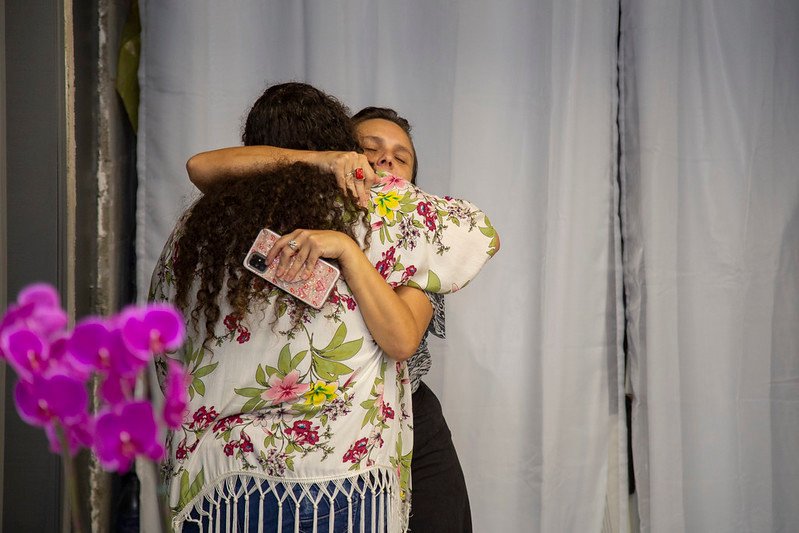This article was voluntarily translated by Izadora Silva, a member of the Elos Translation Community.
“For me, knowledge is only valid if it is meeting the needs of the world.” That is, moving the ways of feeling, thinking and acting of society, towards a better future than today for all beings. At the same time
The phrase is from the Master in History of the Present Time Juliana Campos. Alongside Social Communicator Mariana Felippe, she coordinated the Territories and Communities Survey of Baixada Santista. The work developed by the Elos Institute outlined a profile of those who build grassroots social transformation in the region.
The findings help to better understand the challenges, opportunities and needs to support the work of these leaders. Needs, that are not few by the way, are structural and have historical roots in racism and patriarchy.

If it were a person, this leadership would be a black woman who receives almost no personal support to do what she does. Almost 80% of the people interviewed recognize themselves as women and 70% declare themselves black. The universe of research is people who have built in partnership with Instituto Elos in the last two decades.
The document also points out that more than half of the interviewees, 52.2%, do not have any type of psychological support. Precarious in their movement to make another reality happen, another world, they not even have ensured their right to mental health care. Hence the sentence that summarizes this discovery is: who takes care of those who take care of?
Juliana points out that none of this is new, historically speaking. Women, especially black women, have always had this place in society. She says it is past time for institutes, foundations and other support and development arrangements of leaders and organizations to look with the seriousness of what the topic requires. And not only them: “We do not have public policies that guarantee this basic work with conditions, with dignity”.
In almost 70 pages, the research advances in many directions, in several layers. It indicates, for example, that 96% of leaders act without any kind of personal financial support. That is, without salary, scholarship or allowance.
It is important to highlight, the research does not recognize this as volunteering, which is a conscious decision to donate your time, skills, and energy to support people, groups, or communities without expecting compensation in return. What’s there is a precariousness of grassroots social work, led mainly by black women. And for Juliana, this is not a coincidence.
“I understand that there is a political intention to keep the basis of social work invisible so that an entire structure does not move, as Angela Davis reminds us.” For Juliana, one of the greatest contributions “of our research is to recognize the potential in this base. Pointing out what is missing so these women can do more. With the ideal conditions for this”.
The work done by Juliana and Mariana does not only present photographs of the state of things. Makes recommendations for the Elos Institute itself and for the social field as a whole. By pointing out the lack of financial support so that these women, for the most part, can have the minimum to move their ideas and projects, it indicates as clues for action:
Provide decent working conditions – infrastructure and resources;
Caring for the well-being of each leadership;
Encourage collaborative work and training of new staff;
Remunerate the dedication time and value this role;
Connect leaders in motion;
The data is many and more than that. Little by little everyone will be counted. But some questions are already present:
Are the financial resources of the social field going where they should?
Are organizations building programs and projects committed to the reality of leadership needs?
The research points to a precariousness of the lives of those on the front lines of the transformation of society: what is the response of the field of social impact to this structural problem?

